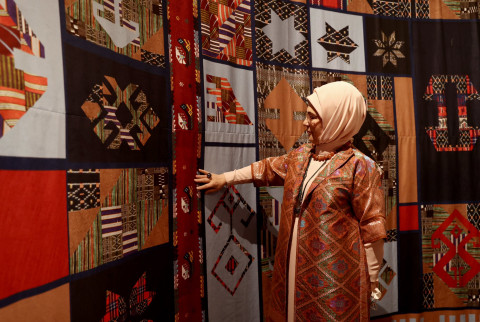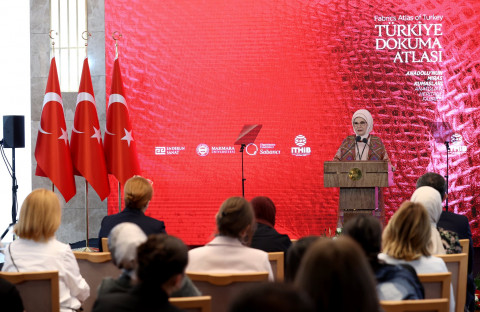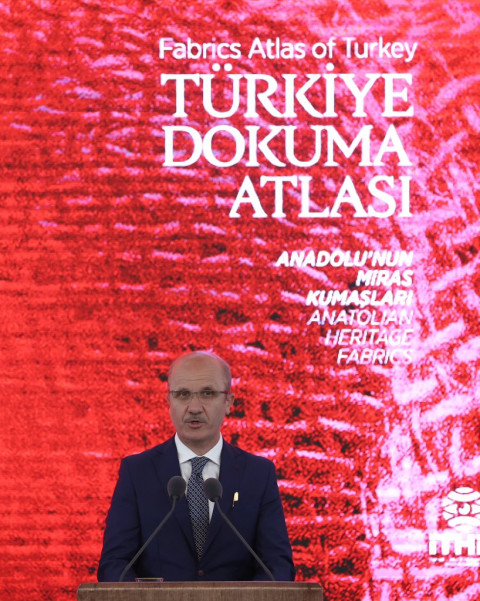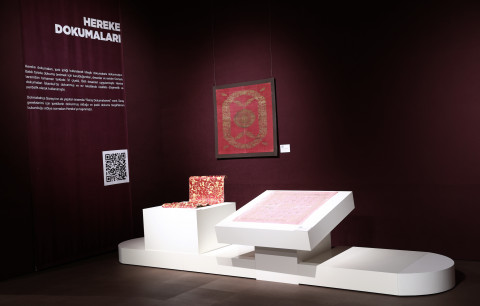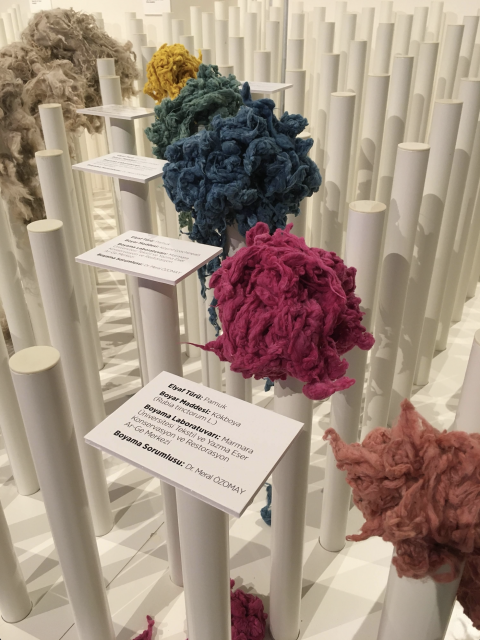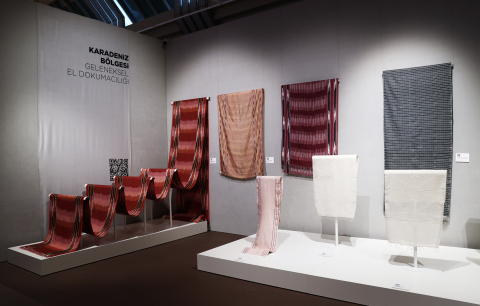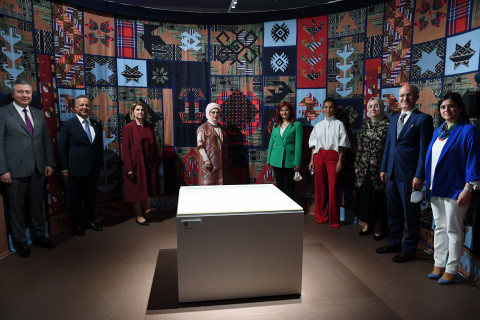Prepared as part of the "Fabrics Atlas of Turkey" project, which brings together the local weavings of Turkey for the first time and carried out under the auspices of first lady Emine Erdoğan, the “Fabrics Atlas Exhibition” was opened at the Presidential Complex, Ankara.
Speaking at the opening ceremony, First Lady Erdoğan stated that they came together to add new kilometers to Anatolia's weaving journey that started seven thousand years ago and "This project is the herald that our weaving art will continue on its way without losing its place in our memories." she said.
In his speech at the opening, Marmara University Rector Erol Özvar said “The geography of Anatolia, which has hosted many civilizations for centuries, has a very rich cultural structure. The art of weaving constitutes one of the most valuable building blocks of our wealth. The fact that our weavings have a special place among the gifts given to high-level statesmen even centuries ago is one of the most important indicators of the value our society places on weaving.”
Stating that as a result of the researches carried out within the framework of the Fabric Atlas project, Özvar stated that our local weavers are faced with some difficulties, especially in accessing raw materials and marketing, and said, “As a result of the analysis studies we applied to all weavings supplied within the scope of the project in our university's Textile and Manuscripts Conservation and Restoration R&D Center, it has been determined that many local weavings use synthetic fibers or fibers that are not suitable for their traditional identity."
Pointing out that the harm of synthetic materials in terms of health and the environment has been proven more clearly with each passing day and the world is on a trend of returning to nature, Prof. Dr. Erol Özvar spoke as follows: As a stakeholder of the "Turkish Fabric Atlas" project, it is extremely important for Marmara University to carry out a wide range of analyzes in our laboratories from the raw material of the yarns that make up our weaving, to the weaving texture, to the determination of the dyestuff used in its coloring; just like in our past, to work on the recoloring of our weavings with natural dyestuffs and to contribute academically to the improvement of our weavings in accordance with their original form."
The " Fabric Atlas of Turkey Project", which was prepared as a product of the renewal efforts of the Maturation Institutes, is carried out by the Istanbul Sabancı Beylerbeyi Maturation Institute, which is affiliated with the Ministry of National Education's General Directorate of Lifelong Learning Programme.
The Turkish Exporters Assembly and the Ministry of Trade also contribute to the project, which is carried out with the support of the Istanbul Textile and Raw Materials Exporters' Association and the contributions of Marmara University.
Prof. Dr. Hülya Tezcan, Prof. Dr. Aydın Uğurlu and Prof. Dr. Mehmet Akalın is the consultant of the exhibition, which was held as the first event of the project, while Ayşe Dizman is the coordinator and Güneş Güner is the curator.
In the exhibition, 151 types of weaving from different regions of Turkey are on display, following regional routes. The show also features Ottoman fabrics from the collection of collector Yusuf Iyilik. Designs of Mehmet Demir, Mert Çelebi, Senem Kula and Rümeysa Kış that carry traditional weaving into the future also take place in the time tunnel part of the exhibition. The exhibition also includes weaving arts, such as "Nature Trilogy" by weaving artists, "Pa" and "Umay Ana" by Elisabeth Strub Madzar, and "Anatolian Goddesses" sculptures by Servet Senem Uğurlu.
Within the scope of the exhibition, panels under the titles of "Evaluation of Traditional and Local Weavings from Different Perspectives", "Keeping A Culture Alive, Weaving Craft and Geographical Indications", "Hand in Hand in Turkish Weaving" will be held. Academicians, local government representatives, textile industry representatives, weaving masters, figures from the world of fashion and design will attend the panels.
The exhibition can be visited six days a week for three months.
